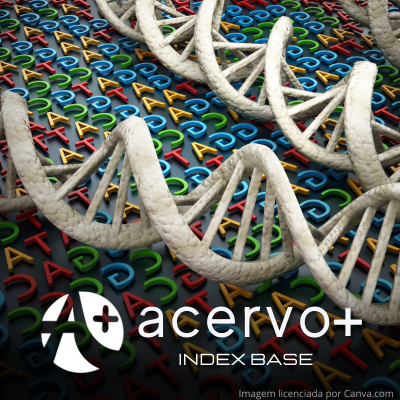Hipercolesterolemia Familiar Homozigótica
##plugins.themes.bootstrap3.article.main##
Resumo
Objetivo: Analisar as características da Hipercolesterolemia Familiar Homozigótica (HoFH). Revisão bibliográfica: A causa mais comum de hipercolesterolemia grave é a hipercolesterolemia familiar homozigótica afetando 1 em 300.000 pessoas. Normalmente, a HoFH é herdada de forma codominante e é causada por mutações bialélicas no gene que codifica o receptor de lipoproteína de baixa densidade (LDLR), que representa a principal via de remoção de partículas de LDL do sangue. O perfil lipídico típico da HoFH é caracterizado por LDL-C elevado (até 300 mg/dL) com subsequentemente aumento dos níveis de colesterol total. Considerações finais: A HoFH é uma doença desafiadora única que traz consigo as múltiplas pressões de urgência para tratar, acesso ao tratamento e aconselhamento genético. O tratamento requer primariamente mudança de estilo de vida com dieta e atividade física. A terapêutica com estatinas e inibidores da proproteína convertase subtilisina kexina tipo 9 (PCSK9) são modestamente eficazes apenas se houver receptor de LDL residual atividade. Outra terapia comumente aplicada é a aférese de lipoproteínas, entretanto é uma terapêutica cara, pouco disponível e que por sua posologia semanal ou quinzenal causa implicações na qualidade de vida do paciente.
##plugins.themes.bootstrap3.article.details##
Copyright © | Todos os direitos reservados.
A revista detém os direitos autorais exclusivos de publicação deste artigo nos termos da lei 9610/98.
Reprodução parcial
É livre o uso de partes do texto, figuras e questionário do artigo, sendo obrigatória a citação dos autores e revista.
Reprodução total
É expressamente proibida, devendo ser autorizada pela revista.
Referências
2. AlLNOURI F, SANTOS RD. New Trends and Therapies for Familial Hypercholesterolemia. J Clin Med, 2022; 11(22): 6638.
3. BAJAJ A, CUCHEL M. Advancements in the Treatment of Homozygous Familial Hypercholesterolemia. J Atheroscler Thromb, 2022; 29(8): 1125-1135.
4. BANSAL S, et al. Evolocumab in patients with homozygous familial hypercholesterolemia in India. J Clin Lipidol, 2021; 15(6): 814-821.
5. BLOM DJ, et al. Efficacy and Safety of Alirocumab in Adults With Homozygous Familial Hypercholesterolemia: The ODYSSEY HoFH Trial. J Am Coll Cardiol, 2020; 76(2): 131-142.
6. CHEMELLO K, et al. Lipoprotein metabolism in familial hypercholesterolemia. J Lipid Res, 2021; 62: 100062.
7. D'ERASMO L, et al. Rare Treatments for Rare Dyslipidemias: New Perspectives in the Treatment of Homozygous Familial Hypercholesterolemia (HoFH) and Familial Chylomicronemia Syndrome (FCS). Curr Atheroscler Rep, 2021; 23(11): 65.
8. GIDDING SS. Managing Patients With Homozygous Familial Hypercholesterolemia. J Am Coll Cardiol, 2017; 70(9): 1171-1172.
9. HARADA-SHIBA, et al. Guidelines for Diagnosis and Treatment of Familial Hypercholesterolemia 2017. J Atheroscler Thromb, 2018; 25(8): 751-770.
10. HUANG CC, CHARNG MJ. Clinical Evaluation Of Evolocumab For The Treatment Of Homozygous Familial Hypercholesterolemia In Chinese Patients. Ther Clin Risk Manag, 2019; 15: 1209-1216.
11. ISHIGAKI Y, et al. Liver Transplantation for Homozygous Familial Hypercholesterolemia. J Atheroscler Thromb, 2019; 26(2): 121-127.
12. JERAJ N, et al. Treatment of Homozygous Familial Hypercholesterolemia With Evinacumab. CJC Open, 2021; 4(3): 347-349.
13. KAYIKCIOGLU M, TOKZGONOGLU L. Current Treatment Options in Homozygous Familial Hypercholesterolemia. Pharmaceuticals (Basel), 2022; 16(1): 64.
14. KOUTSOGIANNI AD, et al. Familial Hypercholesterolemia and Lipoprotein(a): A Gordian Knot in Cardiovascular Prevention. Metabolites, 2022; 12(11): 1065.
15. KRZEMINSKA J, et al. Management of Familial Hypercholesterolemia with Special Emphasis on Evinacumab. Biomedicines, 2022; 10(12): 3273.
16. KUEHN BM. Evinacumab Approval Adds a New Option for Homozygous Familial Hypercholesterolemia With a Hefty Price Tag. Circulation, 2021; 143(25): 2494-2496.
17. MAHZARI M, ZARIF H. Homozygous Familial Hypercholesterolemia (HoFH) in Saudi Arabia and Two Cases of Lomitapide Use in a Real-World Setting. Adv Ther, 2021; 38(5): 2159-2169.
18. MULDER JWCM, et al. Quality of life and coping in Dutch homozygous familial hypercholesterolemia patients: A qualitative study. Atherosclerosis, 2022; 348: 75-81.
19. NOHARA A, et al. Homozygous Familial Hypercholesterolemia. J Atheroscler Thromb, 2021; 28(7): 665-678.
20. QIU HR, et al. Perioperative Management and Clinical Outcomes of Liver Transplantation for Children with Homozygous Familial Hypercholesterolemia. Medicina (Kaunas), 2022; 58(10): 1430.
21. REESKAMP LF, et al. Marked plaque regression in homozygous familial hypercholesterolemia. Atherosclerosis, 2021; 327: 13-17.
22. ROSENSON RS. Evidence-Based, Mechanistic Approach to the Management of Homozygous Familial Hypercholesterolemia. JACC Case Rep, 2022; 4(20): 1331-1334.
23. SANTOS RD, et al. Long-Term Evolocumab in Patients With Familial Hypercholesterolemia. J Am Coll Cardiol, 2020; 75(6): 565-574.
24. STEFANUTI C. Lomitapide-a Microsomal Triglyceride Transfer Protein Inhibitor for Homozygous Familial Hypercholesterolemia. Curr Atheroscler Rep, 2020; 22(8): 38.
25. TROMP TR, et al. Worldwide experience of homozygous familial hypercholesterolaemia: retrospective cohort study. Lancet, 2022; 399(10326): 719-728.
26. TROMP TR, CUCHEL M. New algorithms for treating homozygous familial hypercholesterolemia. Curr Opin Lipidol, 2022; 33(6): 326-335.
27. VELVET AJJ, et al. Homozygous familial hypercholesterolemia with an update on cholesterol management. Oxf Med Case Reports, 2020; 2020(9): 072.
28. VUORIO A, et al. Statins for children with familial hypercholesterolemia. Cochrane Database Syst Rev, 2019; 2019(11): CD006401.
29. YOUNG L, et al. Homozygous Familial Hypercholesterolemia: Luck Meets Opportunity Meets Knowledge. JACC Case Rep, 2022; 4(23): 101666.

